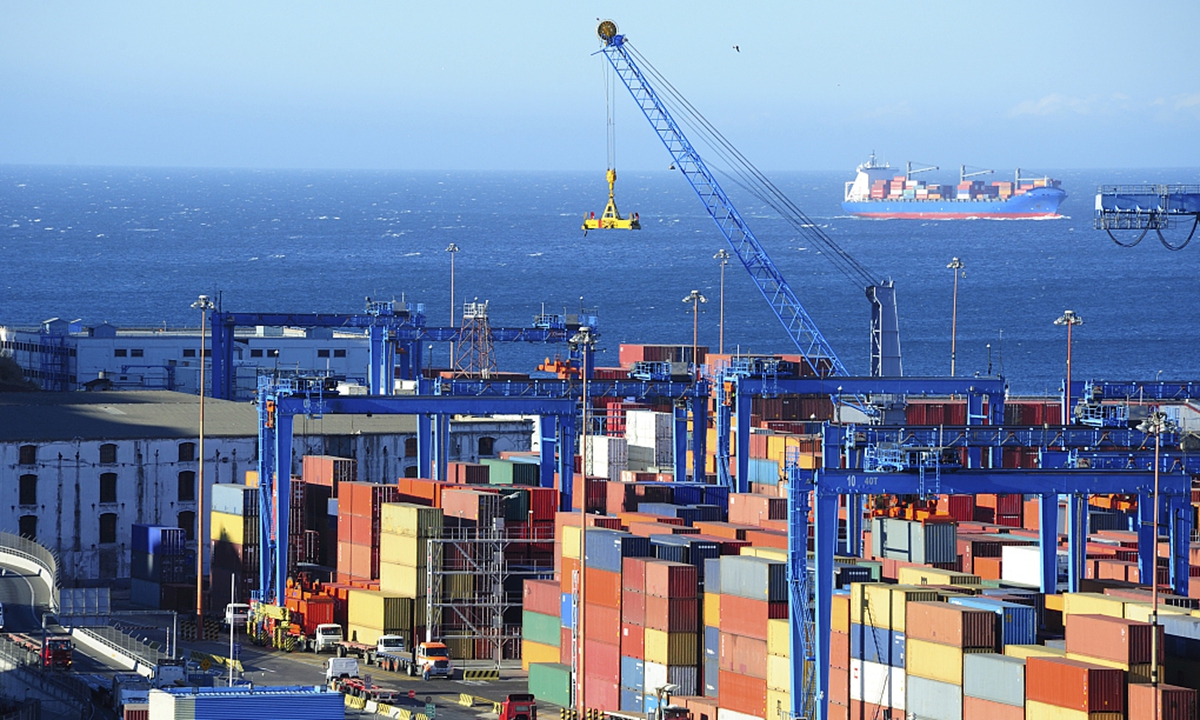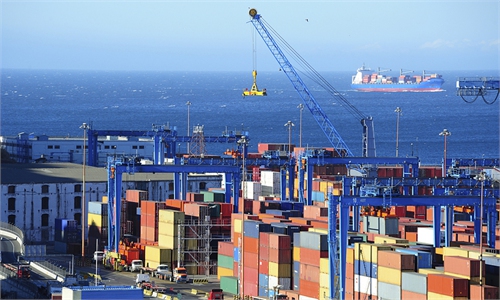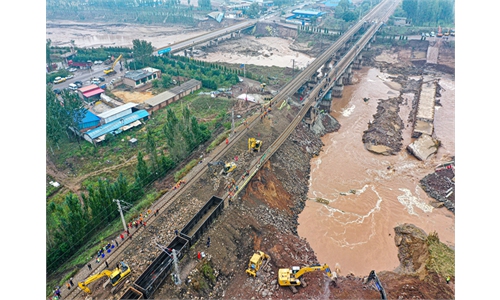China has many ways to tackle problems behind 4.9% Q3 growth: Global Times editorial

Photo: VCG
China's gross domestic product (GDP) amazingly expanded 9.8 percent year-on-year in the first three quarters, data from the National Bureau of Statistics (NBS) showed. In the third quarter (Q3), however, the country's GDP grew 4.9 percent year-on-year, lower than the expectations of economists and institutions at home and abroad. The comparatively weak growth in the third quarter was attributed to power shortages, disruptions in the international supply chain, the COVID-19 epidemic in some regions that dampened consumption, and weakness in the real estate market due to the Evergrande storm, among others.
The Chinese economy remains positive and 8 percent growth for the year should be out of question. Constraining causes are either temporary or distinctly global in nature. In fact, China has managed them relatively well. Supply chain disruptions and the COVID-19 pandemic have also affected growth in other major economies in the third quarter, and their growth could be weaker than expected.
To solve the most prominent problem of the power shortage is within the macro-control of the state. The dynamic zero-case route of epidemic control also has room for improvement. So the slowdown in the third quarter will by no means imply the stalling of China's economic recovery.
The most important thing is to face up to the problem. China's overall GDP growth target for the year will be achieved. Our economy is in far better shape than other major economies. But there is no reason for us to leave our problems unsolved. We need to stick to the principle and attitude of fixing problems as soon as we find them. We must not allow problems to drag on, let alone find excuses to do so as a habit, or even feel that is "right."
The Q3 GDP was below market expectations by 0.1 to 0.3 percentage points. It is not just a number. It shows that many enterprises are in trouble, many people's incomes have decreased, and many people's confidence has been hurt. We must change this trend of decelerated growth immediately and achieve a turnaround again to inspire society.
Based on the situation in the third quarter and the data released today, economists have expected the country to make appropriate adjustments to its monetary and fiscal policies to address the general shortage of funds for small- and medium-sized enterprises and break the dullness in the production sector. In addition, experts have pointed out that infrastructure investment during this year's first three quarters grew by only 1.5 percent year-on-year, a figure considered to be negative growth after adjusting for inflation. China has planned 102 major projects during the 14th Five-Year Plan period, and their implementation should be accelerated.
Public opinion recently misinterpreted the country's macro-control measures. It regarded the promotion of normative adjustments as the country's sign of "changing course." This has shaken the confidence of private enterprises in China. We must prevent the phased, structural and cyclical issues from misleading arguments of public opinion to ensure our confidence, and to implement our expectations.
Society should be convinced that the central position of economic construction won't be changed. The country will be committed to speeding up economic development and improving people's livelihood in the long run, to provide strong material resources to achieve common prosperity. The adjustments in various regions and areas will be carried out around this fundamental task. China's general policy will never deviate from meeting the people's demand for a better life, or make "movements" that go against the laws of economic and social development.
We also want to make sure that our macro-control measures are sufficient to solve the current problems. For instance, our monetary and fiscal policies will be adjusted in strict conformity with the economic situation. The power crunch is currently the most prominent problem, but it is also where the country is most capable of taking action. As our COVID-19 epidemic prevention and control has become a new norm, China's ability to clear COVID-19 cases has created a huge advantage for us and provided room for attempts and adjustments. In general, it is unlikely to become the "burden" for China's economy as some foreign media have proclaimed.
In the next 10-odd years, China will increase its per capita GDP from $10,000 to $20,000. In this process, China's systemic advantage and strength will help the country effectively avoid the fundamental risks that would lead to a middle-class trap, including social turbulence and external financial impact. Meanwhile, China's struggle against the US in the past years has also proven China's strong ability to break the encirclement campaign. While the global economy was sluggish in the third quarter, China has maintained a strong increase in exports. This is the latest evidence that the world economy cannot decouple from China.
China also had problems in the third quarter: Local bureaucracy showed up in some places and electricity shortage has turned into an issue that may influence the entire situation. This shouldn't have happened. And it is notable that the government gave importance to addressing electricity shortage due to online public opinion.
China's system is highly capable of solving problems. But the process to find and confirm problems must be faster. In the meantime, seeking truth from facts should always be a principle for governments of all levels. Such being the case, short-term downward fluctuations in economic growth are not a strategic problem, and China's long-term outperformance is predictable.



